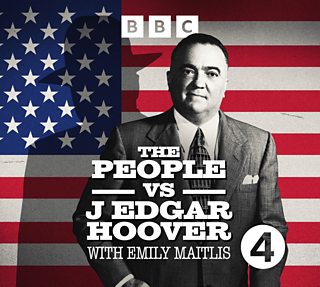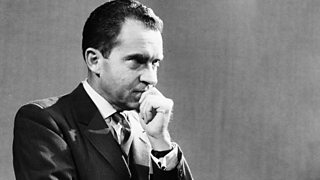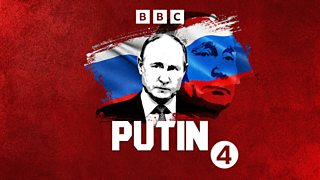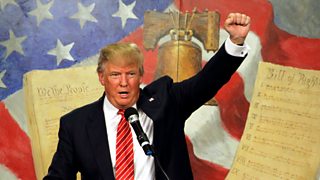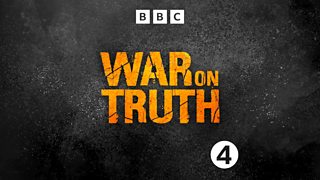How J Edgar Hoover became one of the most powerful men in America
From his office at the FBI – the crime-fighting agency he led for nearly 50 years until his death in 1972 – J Edgar Hoover became perhaps the most powerful individual the United States of America has ever seen, gathering extensive intelligence on enemies and allies alike.
In The People vs J Edgar Hoover, Emily Maitlis charts how this once revered – then later reviled – figure turned the FBI into a formidable crime-fighting and surveillance force while also shaping the paranoid political culture of an entire superpower.
So how did he do it?
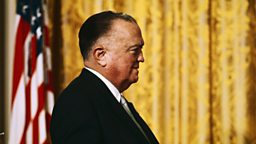
1. Hoover was the ultimate Washington insider
John Edgar Hoover was born in Washington, DC in 1895 and spent most of his life there. His final resting place is near his childhood home, by Capitol Hill. Washington through and through, it's perhaps no surprise that Hoover never left the US and never owned a passport. He also never married. He lived with his mother until she died when he was 43, and then he lived alone.
Find out more about Hoover's early years by listening here.
2. His intelligence gathering started after the First World War
Hoover's early career at the Justice Department involved building profiles of political activists. Against the context of the Russian revolution, economic unrest in the US and concerns about anarchist attacks, Hoover oversaw an overzealous and sometimes unlawful detainment of suspects.
However, he deftly stepped back from the subsequent backlash to this, but continued the same activities with the new Bureau of Investigation, later the FBI. Hoover's ever-growing paper trail, meanwhile, was becoming the bedrock of an "analogue internet" covering a world of political espionage.
3. Hoover cemented the G-Man image
The depression of the 1930s meant that criminals enjoyed a lot of public support. John Dillinger, Bonnie and Clyde, Pretty Boy Floyd, Baby Face Nelson and Machine Gun Kelly were all seen as "sticking it to the man". Films like The Public Enemy in 1931, starring James Cagney, celebrated these gun-toting criminals.
Cut to four years later and Cagney had gone from hero gangster to hero G-man, or government man, the nickname given to FBI agents. What changed? After initially being hampered by having no right of arrest, the FBI’s powers and resources (e.g. fingerprinting, forensics and guns) increased. This was partly thanks to Hoover's networking prowess. The G-Men cleaned up.
4. He claimed to have arrested one of America's most notorious gangsters himself
In the wake of its success, Hoover sought to double the FBI's budget, but he ran into opposition from a hostile senator and was forced to admit that he'd never made an arrest.
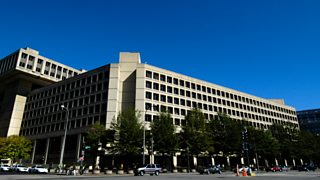
Hoover's response was to fast-track the capture of the last big-name gangster at large, Alvin Karpis. The story was that Hoover had made the arrest himself.
Years later, Karpis himself was interviewed and remembers it very differently. But it didn’t matter. "Hoover could have said 'yes I arrested Alvin Karpis and brought him back to Washington on a flying carpet'," says FBI writer Bryan Burrough, "and there were very few people in America who would have risen to challenge that version of events."
Find out more about the birth of the FBI and how Hoover took on the gangsters here.
5. He was at the forefront of anti-communism but not its figurehead
The Japanese aerial attack on Pearl Harbour in 1941, which brought the US into the Second World War, put the spotlight on the competence of Hoover and US intelligence. But by the time the Second Word War ended, the FBI had grown in size and importance.
Franklin D Roosevelt's death and Harry S Truman's succession as president was initially a check against Hoover. However, with Stalin getting the bomb, Berlin blockaded, Chairman Mao's rule in China and, soon after, the Korean War, Truman approved anti-communist surveillance. This affected institutions at every level of society. The public face of the purge was Senator Joe McCarthy, not Hoover. McCarthy’s 'Red Scare' involved wild allegations and heavy-handed tactics. It ultimately burned itself out, leaving Hoover to turn the screw in his own way.
Find out more about Hoover and the great Red Scare here.
6. Hoover targeted Martin Luther King as a security threat
Dubbed "the most dangerous man in America" by the FBI, Martin Luther King's card was marked from the start.
A fear of Communist activity among King's followers enabled Hoover to get King's home and offices bugged. The FBI were looking for political statements, but they found evidence of King's affairs instead. They used this to threaten King, telling him, in an anonymous letter "there is only one way out for you".
King was assassinated in Memphis in 1968. When FBI agent Paul Letersky called him to tell him King had been shot, Hoover replied: "I hope this son of a bitch doesn't die because if he does, they'll make a martyr out of him."
Find out more about Hoover's vendetta against Martin Luther King.
7. His tactics encouraged a new era of investigative journalism
An audacious theft of papers from an FBI field office in 1971, carried out by anti-Vietnam War activists, led to Hoover being widely regarded as the bad guy. Hoping to find incriminating material about the US conduct of the war, the activists – cleverly using the cover of the televised Joe Frazier v Muhammad Ali fight – uncovered evidence that every FBI agent in the country was required to hire at least one informer who would create files on black people.

Hoover was an enigmatic figure who was adored in his lifetime... But nowadays, he is seen as the man who spied on America.
The Washington Post resisted pressure from the FBI and broke this shocking story, ushering in a new age of investigative journalism and of oversight of the intelligence services - with a little help from The Pentagon Papers and Watergate.
Find out more about how Hoover became the bad guy here and here.
8. Hoover 'knew too much' for any president to fire him
As Emily Maitlis says: "J Edgar Hoover was an enigmatic figure who was adored in his lifetime and had a public approval rating of around 80%. But nowadays, he is seen as the man who spied on America."
But what triggered his fall from grace? Following the FBI field office burglary and aware his credibility was exhausted, Hoover gave Nixon an opportunity to dismiss him. A crippling fear of repercussion prevented Nixon from doing so.
Hoover knew too much, so while a succession of presidents after Roosevelt were wary of him (Truman feared Hoover was building a Gestapo, Kennedy called him "that bastard"), they would not oust him. The only block to Hoover was his own mortality. He died in April 1972, just a few months before Watergate broke.
Find out more about Hoover’s fall from grace by listening here.
9. He took most of his biggest secrets to his grave
As soon as Hoover died, the order came to seal his office. But Hoover was ahead of the game from beyond the grave. He had left his secretary, Helen Gandy, instructions to get rid of 48 years' worth of files. There’s much conjecture about what the files contained. What is certainly likely is that among those documents were secrets that kept everyone from political activists to presidents in check for half a century.
For even more revelations about Hoover's life and career, and to hear more about his impact on American society, listen to the full series of The People vs J Edgar Hoover.

More from 麻豆社 Radio 4
-
![]()
Archive on 4: Frost on Nixon
David Frost turns to the archives to get beneath the skin of the 37th US President, Richard Nixon.
-
![]()
Putin
Jonny Dymond tells the extraordinary and revealing story of Vladimir Putin's life.
-
![]()
Seriously... Trump and the Politics of Paranoia
A history of American politics and its paranoid strain.
-
![]()
War on Truth
What's fake, what's real? Stories from the information war over Ukraine.
